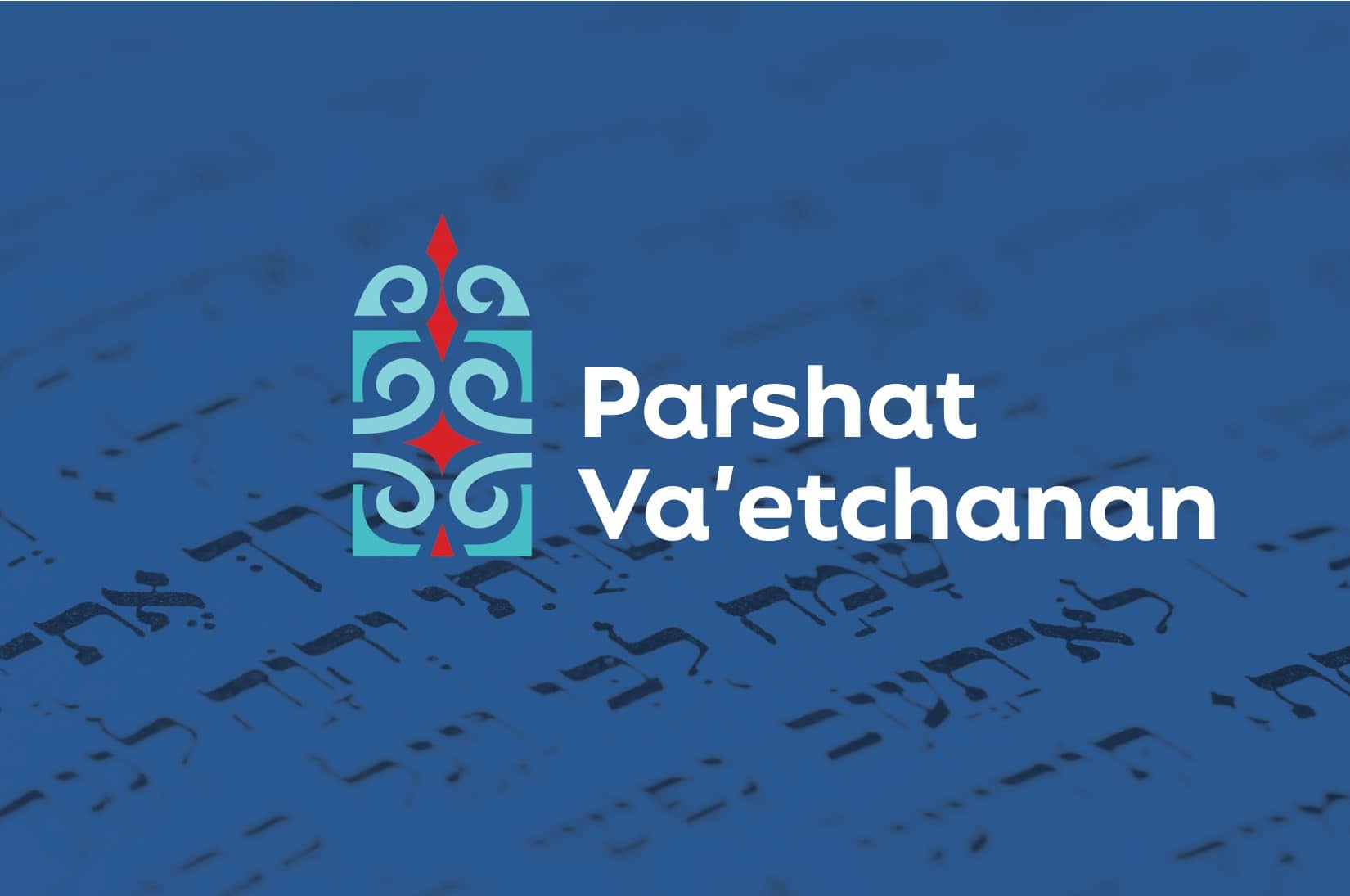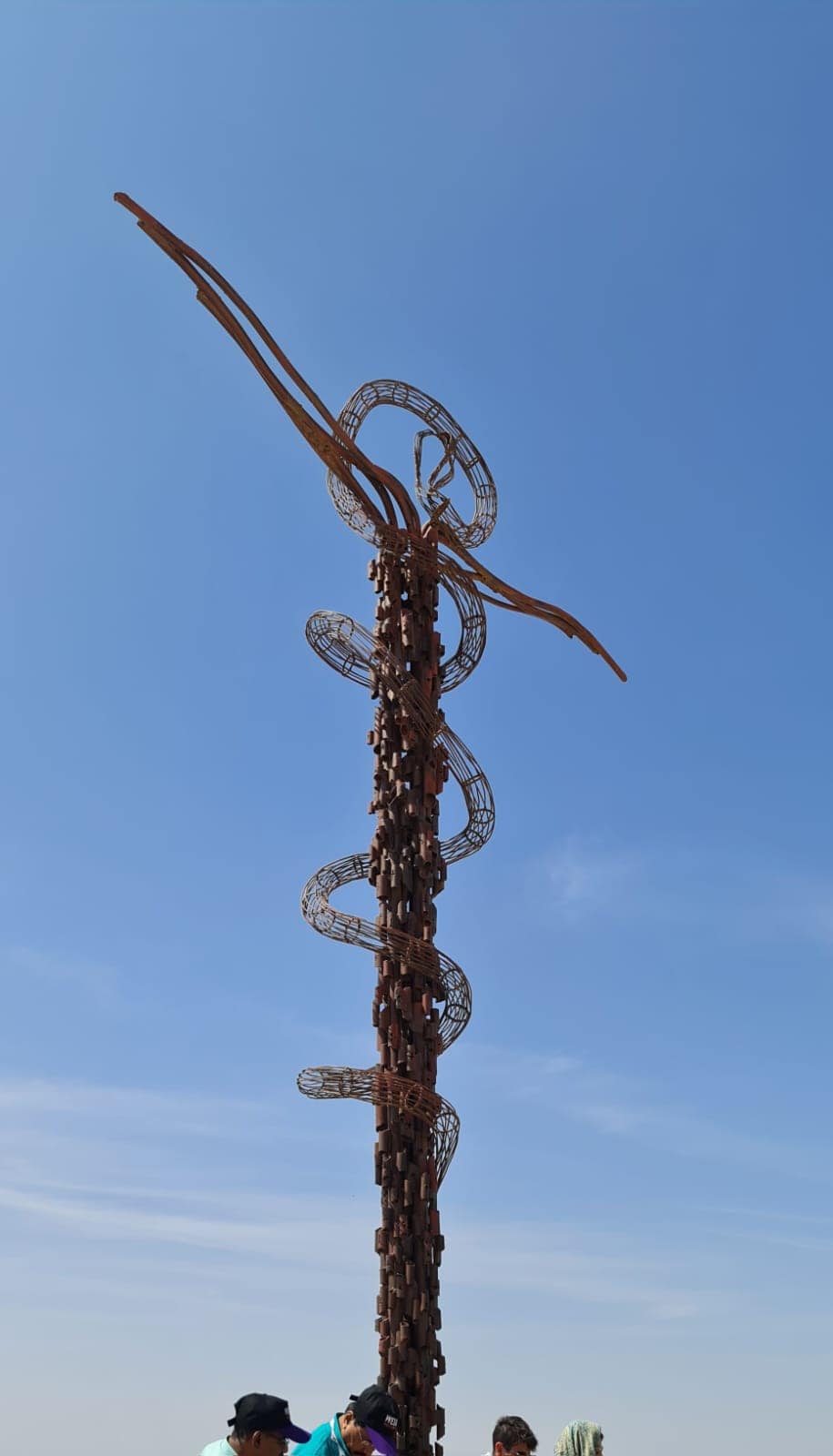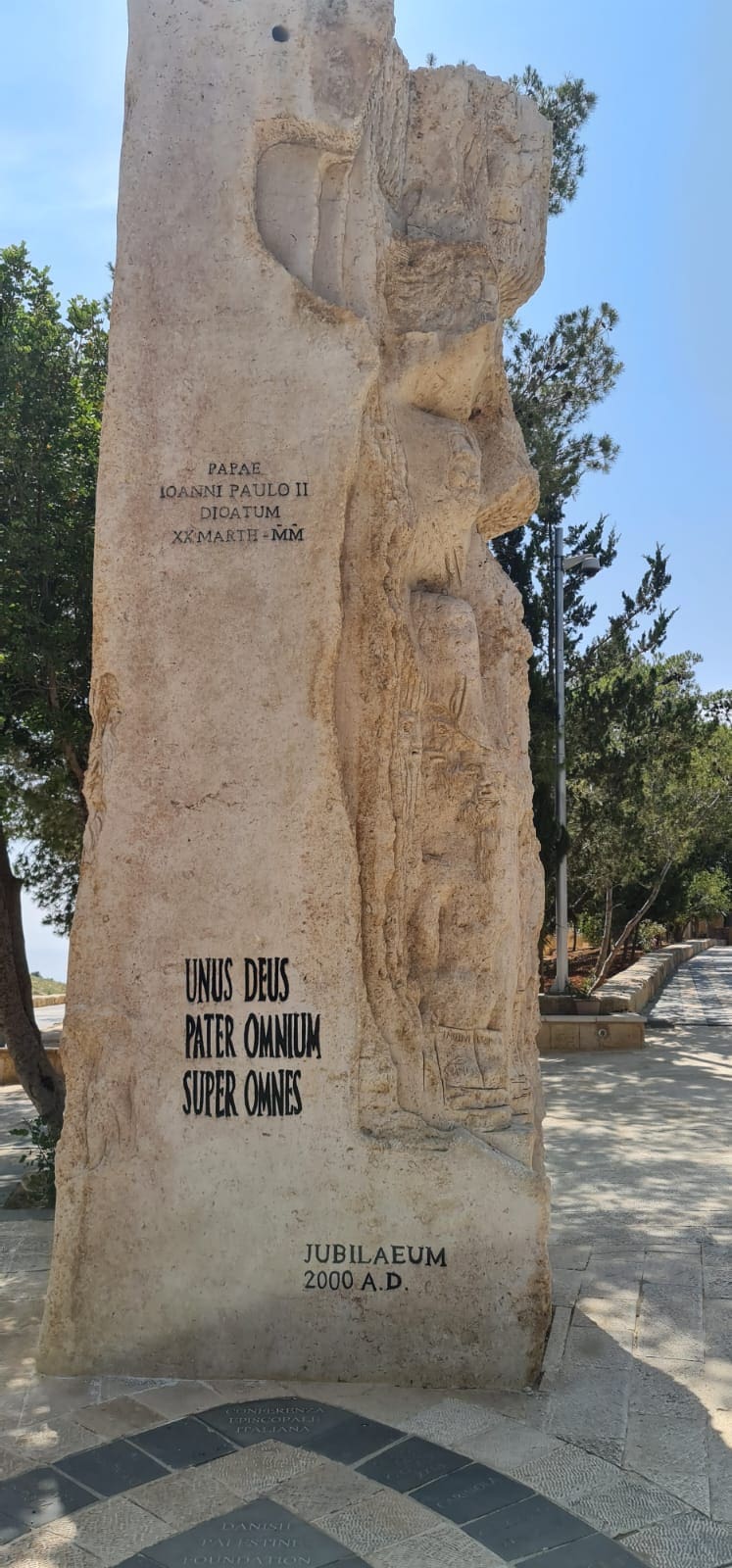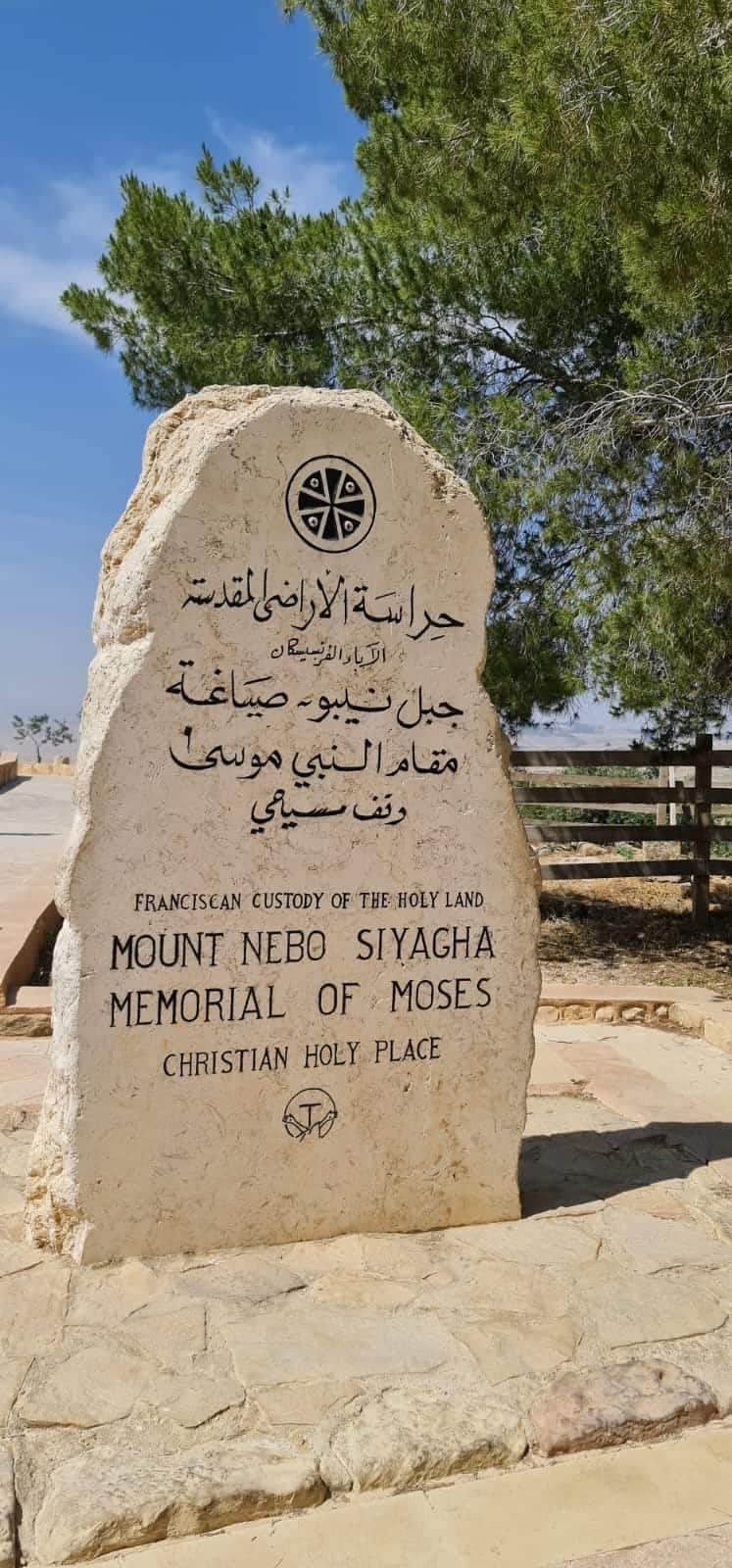
This Shabbat, we will read Parashat Va’etchanan, the second portion in the Book of Devarim.
In this parasha, Moshe pleads with God to allow him to enter the Land of Israel. However, his request is denied. Instead, God commands him to ascend to the top of the mountain and look out over the land from afar. This becomes the final glimpse of the Land of Israel that Moshe will see in his lifetime, a deeply emotional moment of farewell.
(During one of my visits to Jordan, I’ve been in this place. From there, you can clearly see Jericho, and even almost all the way to Jerusalem.)
Video of Har Nevo from my visit.
This parasha also contains several central foundations of Jewish faith:
The Ten Commandments are repeated here for the second time.
Later, we find the verse Shema Yisrael, the beating heart of our faith, which expresses the belief in one God, and calls on us to love God with all our heart, all our soul, and all our might (our financial resources).
This Shabbat is also known as Shabbat Nachamu – the Shabbat of Consolation.
With the close of Tisha B’Av, we enter a new season of comfort.
The Haftarah this week is the first of the Sheva D’Nechamata (the seven Haftarot of consolation). It opens with the stirring words of the prophet Isaiah: “Nachamu, nachamu ami”: “Be comforted, be comforted, My people”.
After mourning the destruction of the Temple, we begin a journey of hope. The prophecy foretells the end of suffering and punishment and opens the door to dreams of redemption, rebuilding Jerusalem, and the return of the Jewish people to their homeland.
(And today, anyone who wishes to come to Israel can do so with just one connecting flight)
The Haftarah speaks of a voice calling in the wilderness, preparing the way for God and announcing the coming of redemption.
Shabbat Nachamu marks the shift from mourning to hope. It reminds us that even in our hardest moments, when we hold on to vision and faith, there is always the promise of a better future, the promise of redemption and of comfort.
It teaches us that after sorrow, brighter days will come.
Shabbat Shalom! may it be a comforting and uplifting Shabbat.
Rabbi Eliyahu Barzilai



דבר תורה לפרשת ואתחנן
השבת נקרא בע”ה את פרשת ואתחנן, הפרשה השנייה בספר דברים.
בפרשה זו, משה רבנו מתחנן להשם שייכנס לארץ ישראל, אך בקשתו נדחית. במקום זאת, השם מצווה עליו לעלות לראש הפסגה ולראות את הארץ מרחוק. זוהי התמונה האחרונה של ארץ ישראל שמשה יראה בחייו, וזהו רגע מרגש של פרידה.
(באחד הביקורים שלי בירדן הייתי במקום הזה. זה היה הר שממש רואים ממנו את יריחו כמעט עד ירושלים).
בפרשה זו מופיעים גם יסודות מרכזיים של היהדות:
עשרת הדיברות מופיעות בה בשנית.
בהמשך, מופיע פסוק שמע ישראל, שהוא הלב הפועם של אמונתנו, ובמרכזו האמונה באל אחד והקריאה לאהבת ה’ בכל לבבינו, בכל נפשינו ובכל מאודינו (=כספינו).
השבת גם נקראת “שבת נחמו”. עם צאת תשעה באב, אנו נכנסים לתקופה של נחמה.
ההפטרה השבוע היא הראשונה מבין שבע ההפטרות של הנחמה, והיא פותחת במילים המרגשות של ישעיהו: “נחמו, נחמו עמי”.
לאחר ימי האבל על חורבן המקדש, אנו עוברים למסע של תקווה. הנבואה מבשרת על סיום תקופת הסבל והעונש, ופותחת צוהר לתקווה של גאולה, שיקום ובניית ירושלים ושיבת עם ישראל לארצו.
(היום מי שרוצה יכול להגיע לארץ ישראל עם קונקשן אחד בלבד).
ההפטרה מדברת על קול קורא במדבר, המיישר דרך לה’ ומודיע על בוא הגאולה.
שבת נחמו היא מעבר מאבל אל עבר התקווה לעתיד. היא מזכירה לנו שגם ברגעים הקשים ביותר, אם יש לנו חזון, אז קיימת ההבטחה לגאולה, ההבטחה לנחמה. היא מלמדת אותנו שלאחר הצער, תמיד יבואו ימים טובים יותר.
שבת שלום, מנוחמת ומרגשת הרב אליהו ברזילי